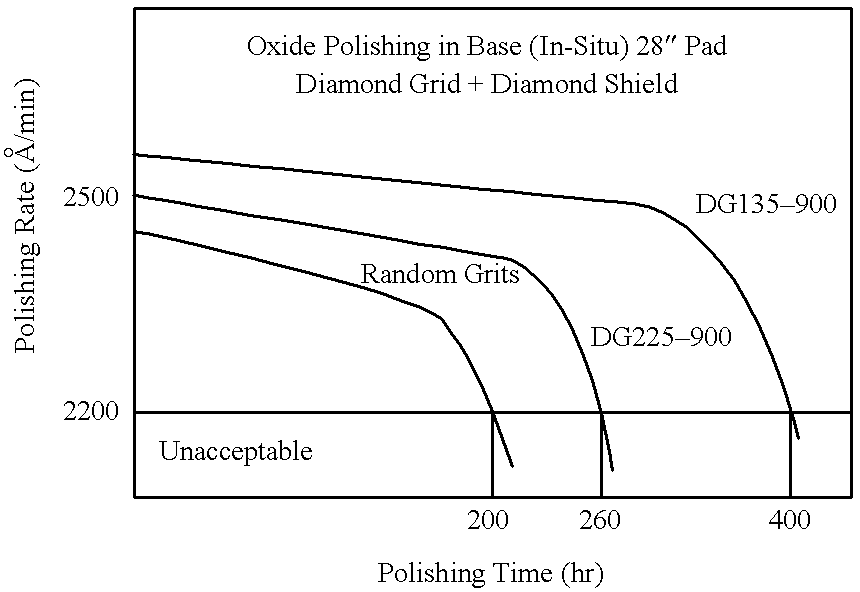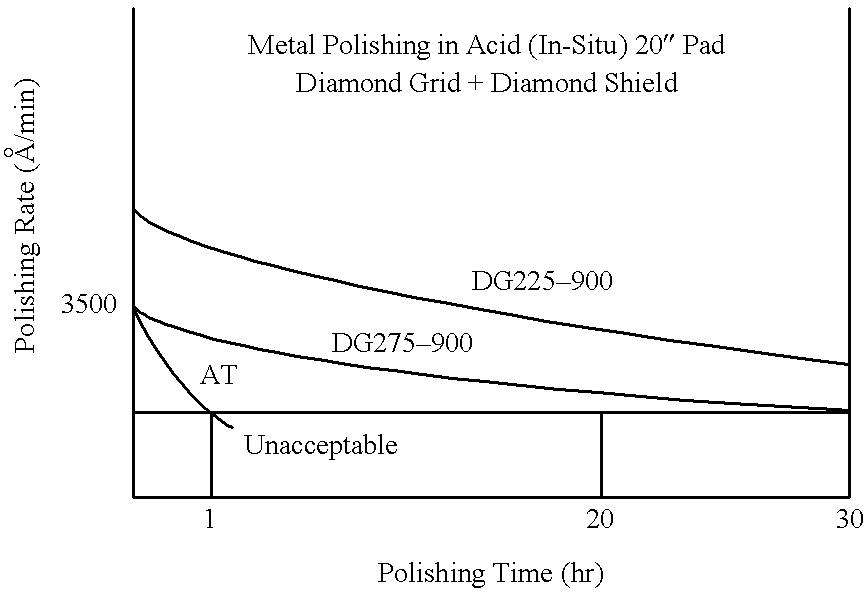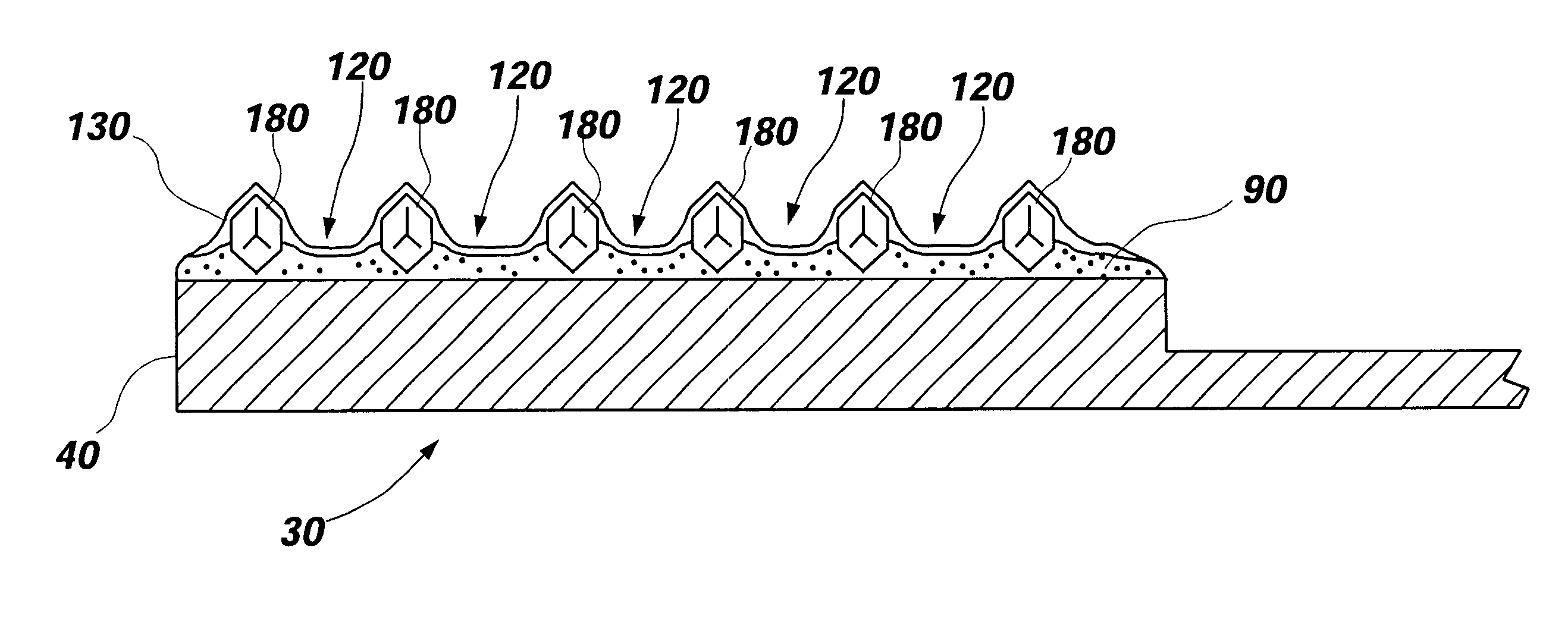Diamond grid CMP pad dresser
a technology of diamond grid and dressing pad, which is applied in the direction of abrasive surface conditioning device, lapping machine, manufacturing tool, etc., can solve the problems of diamond disks made by conventional methods that are difficult to cure, and the pad is less able to hold the abrasive particles of the slurry,
- Summary
- Abstract
- Description
- Claims
- Application Information
AI Technical Summary
Benefits of technology
Problems solved by technology
Method used
Image
Examples
example 2
Two additional diamond disks were fabricated by the method of Example 1. However, diamond sizes of 225 micrometers and 275 micrometers were used. Additionally, each disk was coated with a 1 micrometer thick diamond-like carbon coating to protect the brazing alloy. The diamond-like carbon film was deposited by a cathodic arc method.
These disks were then compared to a conventional diamond disk by dressing a CMP pad for polishing 8 inch silicon wafers. The pad was immersed in an acid slurry with a pH of 3.0. The dressing was performed in-situ while the polishing was taking place. The results are shown in Table 2 below. DG 275-900 is the disk containing evenly spaced grits of 275 micrometers in size. DG225-900 is the disk containing evenly spaced grits of 225 micrometers in size, and AT is the conventional diamond disk.
As can be seen from Table 2, the conventionally produced diamond disk is unable to survive in the acid environment of the polishing slurry for more than 1 hour. However, ...
PUM
| Property | Measurement | Unit |
|---|---|---|
| Fraction | aaaaa | aaaaa |
| Thickness | aaaaa | aaaaa |
| Fraction | aaaaa | aaaaa |
Abstract
Description
Claims
Application Information
 Login to View More
Login to View More - R&D
- Intellectual Property
- Life Sciences
- Materials
- Tech Scout
- Unparalleled Data Quality
- Higher Quality Content
- 60% Fewer Hallucinations
Browse by: Latest US Patents, China's latest patents, Technical Efficacy Thesaurus, Application Domain, Technology Topic, Popular Technical Reports.
© 2025 PatSnap. All rights reserved.Legal|Privacy policy|Modern Slavery Act Transparency Statement|Sitemap|About US| Contact US: help@patsnap.com



